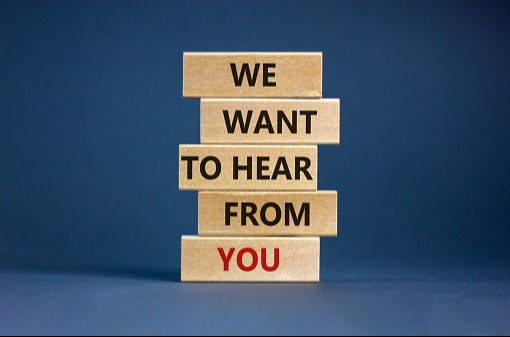Hearing Goals: What does self -advocacy look like?
by Envoy Medical Staff Member, on January 8, 2023
The start of the new year is an opportunity for personal reflection, and each year an average of 38.5% of adults set New Year's resolutions. The most common resolutions tend to be around health and wellness losing weight is the most popular. We tend to forget our health is affected by many things not just our physical weight and diet. Hearing loss can impact our social lives and contribute to stress, isolation, and depression all of which are associated with mental health disorders that increase the risk of things like heart disease. Managing hearing loss doesn't end with a hearing aid or implant. Setting goals to improve how we manage our lives living with this condition can benefit our overall health and quality of life.
Identify your goal
Empowerment starts with a goal. Whether you are at work, in a book club or bible study, taking a class, or in an academic setting the goal below may be relevant to you.
At (your own specific event) I would like to engage effectively in a range of collaborative discussions in a variety of listening situations including one-to-one, groups, and leader-led collaborative discussions
Set Objectives
Learn to articulate the hearing loss you have. Are you able to articulate what type and degree of hearing loss you have? If you are not, ask your audiologist to go over your latest hearing test with you. This can be incredibly helpful. Learn more about hearing tests here.
Example: I have bilateral hearing loss with moderate loss in my left ear and severe loss in the right ear. With my (hearing device) I can understand pretty well in 1:1 or quiet situations and my speech understanding is pretty good when I am looking at you.
Barriers
Do you understand the communication barriers that might occur for you in this specific setting as a result of your hearing loss and can you articulate them?
Example: Someone sitting to the right of me is hard to communicate with because that's my worse ear. When there is more than one person talking I get lost and can't follow the conversation. If a speaker has a soft voice I will not hear them. If I am randomly called on, I may struggle, so getting my attention and repeating the question or comment is helpful.
Identify Strategies
Identify at least two strategies that could be used to enhance the situation. This is another place where an audiologist can be really helpful to you. Of course the setting matters and the size of the group. A neighborhood book club might not require a microphone set-up, whereas a church bible study could easily set that up.
Example: It's important for me to sit near the front with my good ear towards the speaker. A microphone is helpful to me, repeating a question someone asks is helpful. If we break into small groups spreading out helps manage the background noise. A while board with a brief agenda or important information is helpful to me.
Other examples: Flexible seating, CART, FM system, and notes on a visual display like a whiteboard. Asking for clarification, explanation, and repetition is also helpful.
Hearing technology:
An FM system has two parts. One part is a microphone that the speaker wears. The microphone sends a signal to a receiver. You wear the receiver on your ears or in your hearing aids. This lets the speaker's voice go directly to you, making it easier to hear. You can get these online or through your audiologist.
CART Service means Communication Access to Realtime Translation Service. CART Service provides instantaneous translation of what is being said into a visual print display so that it can be read (instead of heard). This requires monitors and computers and can be pretty expensive.
Self-advocate: Put it all together
This is where you educate the instructor or leader of the group or class on your hearing loss and the specific limitations you face. Then let them know what hearing technology and accommodations will help you.
Request a phone call, chat, or send an email to the group leader.
Example: "Hi Carol, I'm looking forward to joining the bible study!
I have bilateral hearing loss with moderate loss in my left ear and severe loss in the right ear. With my (hearing device) I can understand pretty well in 1:1 or quiet situations and my speech understanding is pretty good when I am looking at you.
However, I do have some challenges engaging effectively in different listening situations. If someone is sitting to the right of me it is harder to communicate with them because that's my worse ear. When there is more than one person talking I get lost and can't follow the conversation, and if a speaker has a soft voice I will not hear them.
To fully engage it's important for me to sit near the front with my good ear towards the speaker would it be possible for you to reserve a seat for me?
When speakers use a microphone it helps a lot, would it be possible to use one for this group?
Let me know if you have questions, I'm looking forward to participating!
The more we become comfortable with managing our lives in this way and advocating for ourselves as we would for our child or loved one, the more fulfilling our lives become.

The “hearing aid exclusion” within Medicare has denied many older adults with hearing loss access to hearing technologies and healthcare services that can help them remain healthy, connected, and able to care for themselves.
Envoy Medical Asks You to Urge Your Members of Congress to Support H.R. 1118, the Medicare Hearing Aid Coverage Act of 2021 to provide better access to treatments that improve hearing health.
Click here to request a letter template!


